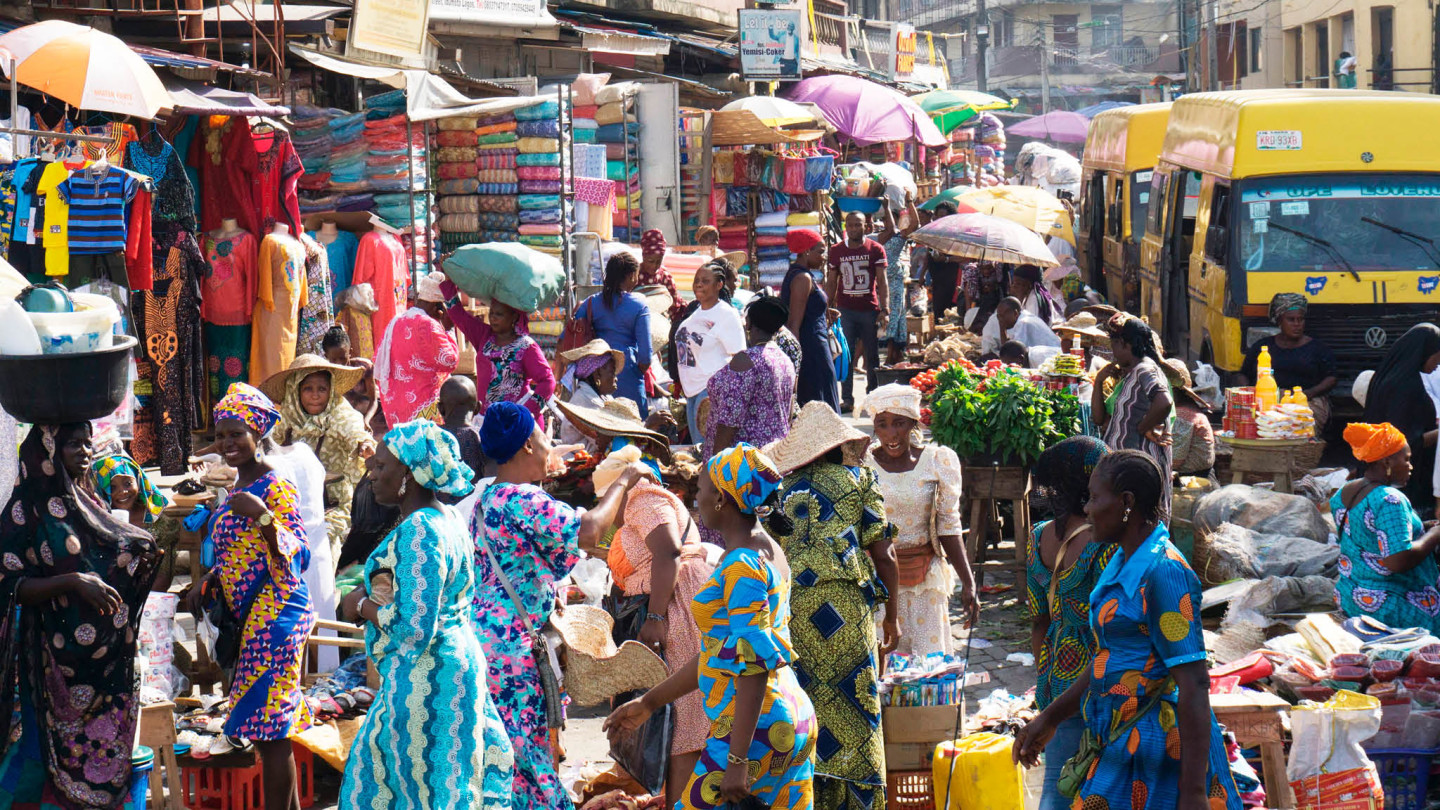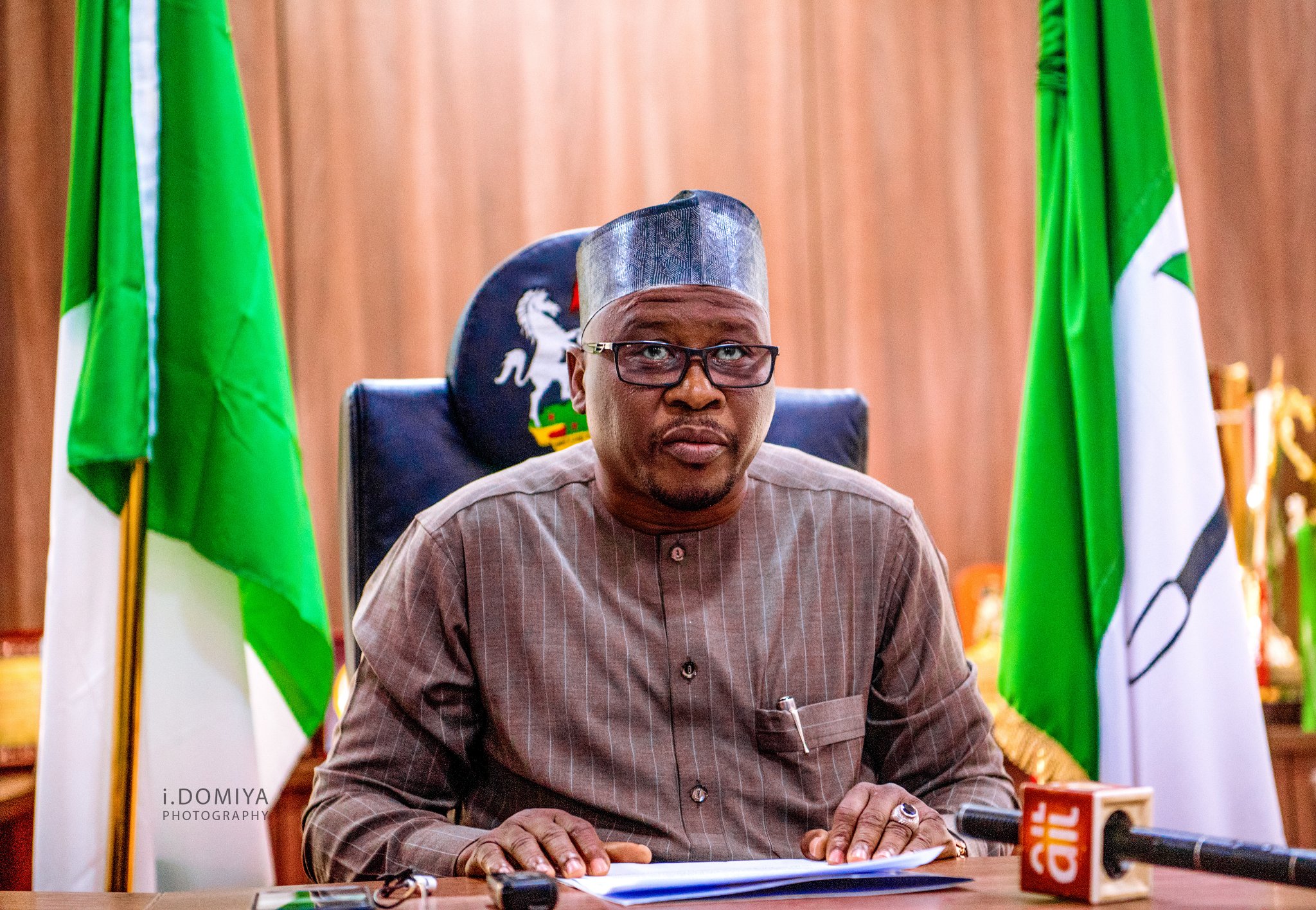Agriculture
56% of Nigeria’s Agricultural Land Not in Use, Says Minister

Nigeria’s federal government has disclosed that 56 per cent of Nigeria’s arable land is underutilised.
Disclosing this in Jos, Plateau State on Thursday at the ongoing 45th regular meeting of the National Council on Agriculture & Rural Development, the Minister of Agriculture and Rural Development, Dr. Mohammad Abubakar said, “Nigeria is endowed with a total of 79 million hectares of agricultural land with only 44 per cent being cultivated. The nation also has 267 billion cubic meters fresh surface water and 58 billion cubic meters underground water, with 37 billion cubic meters only stored in dams.
“Annual rainfall in the country is within the 300mm to 4,000mm. Conversely, potential irrigable area is about 3.14million Hectares with less than seven per cent utilised presently.”
He, however, said the government was doing all it could to encourage agriculture having trained 153,124 women and youths on various agricultural crop, fishery and livestock value chain and empowered 142,703, trained 214,787 farmers on Good Agricultural Practices (GAP) and 220,018 farmers on Farmer Business School (FBS).
The minister said, “recent reports from the National Bureau of Statistics indicates that the agricultural sector topped the chart in a survey of seven sectors identified to have contributed to the Nigeria economy in the second quarter of 2022.
“It out-performed six other sectors comprising Trade, Telecommunications, Manufacturing, Oil & Gas, Real Estate as well as Finance & Insurance. The chart revealed that Agriculture alone contributed 23.3 per cent to GDP (Half Year 2022).”
To improve its performance, the minister said the federal government was strengthening the linkage between research, agriculture and industry by intensifying commodity value chain development process.
“This is being guided by the new framework of the National Agricultural Technology and Innovation Policy (NATIP), 2022-2027, launched in August 2022, which seeks to modernise the agricultural sector in line with changing global food systems and supply chains.
“Actually, NATIP is the Ministry’s response to the present Administration Agenda of diversifying the nation’s economy from petroleum oil-based to Agriculture and solid minerals.
“The document serves as successor policy of the Agricultural Promotion Policy (APP), 2016-2020, with a view to developing priority value chains on the basis of comparative ecological advantage across crops, livestock and fisheries sub-sectors in collaboration with the States Government.
“In pursuant of our mandate of ensuring food security, employment generation and wealth creation in the country, the Ministry is committed to supporting the establishment of over 100 processing centres in the rural communities across the nation under the Green Imperative Project of a private-driven mechanization programme.”
Abubakar said the Ministry hopes to vigorously develop clusters, rural nodal centres and rural cottage industries, as well as establish six Special Agro-industrial Processing Zones (SAPZ) nationwide.
“As an impetus, Mr. President has approved an intervention fund for the completion of the 10 Nos large-scale rice mills with a combined minimum capacity of 320 MT per day in 10 states. The Mills are located in Jigawa, Kano, Adamawa, Niger, Kaduna, Gombe, Ekiti, Ogun, Bayelsa and Federal Capita Territorry (FCT).”
Also speaking, Minister of State for Agriculture, Hon. Mustapha Shehuri said he was confident that given the level of cooperation and partnership amongst the Ministry’s state and non-state actors, and with the application of appropriate technologies, the goals of achieving food security, diversifying the economy for agribusiness undertakings and growing the GDP would be achieved.
In his remark, the Governor of the state, Mr. Simon Lalong, who thanked the minister for giving the state attention and support in the process of implementing the National Livestock Transformation Programme (NLTP), added that the, “NLTP is so dear to us because it contains strategies that will tackle the farmer-herder clashes occasioned by unending crisis that has brought pains and retrogression in the state. As one of the pilot States, we are optimistic that the programme will bring economic prosperity to our people.”
He said over the last seven years, the state had given enormous attention to agriculture by ensuring the provision of farm inputs such as tractors, fertilizers, chemicals, improved seedlings and many more towards ensuring that our people benefit from the natural endowments of the state.
Agriculture
Fintiri Unleashes N2bn Boost for Farmers as Adamawa Rolls Out 2025 Agricultural Support Programme

The Adamawa State Government has launched the 2025 Agricultural Support Programme aimed at empowering smallholder farmers and enhancing food security across the state.
Commissioner for Agriculture, Prof. David Jatau, disclosed this on Friday while briefing journalists in Yola. He revealed that Governor Ahmadu Umaru Fintiri had approved a substantial N2 billion for the initiative, which targets increased agricultural productivity in the upcoming farming season.
According to Jatau, the programme—which is already underway—will provide subsidised agricultural inputs such as fertilisers, improved seeds, and other essential materials to farmers in six local government areas.
“The programme has already commenced in six LGAs—Madagali, Michika, Hong, Maiha, Demsa, and Ganye,” he said. “By next year, during the rainy season, we will extend the programme to the remaining LGAs.”
He explained that 300 hectares of farmland would be cultivated in each of the participating local governments, with 300 farmers benefitting per council.
To ensure fairness and transparency, Jatau said a multi-stakeholder committee had been constituted to oversee the beneficiary selection process. The committee comprises representatives of traditional councils, local government authorities, security agencies, youth groups, and women organisations.
“We are also equipping extension workers with training to offer farmers guidance on modern agricultural techniques for improved yield,” he added.
The commissioner noted that the intervention would not only increase food production but also generate employment, improve rural incomes, and contribute to economic stability in farming communities.
Jatau also revealed that the state government is collaborating with non-governmental organisations and agricultural development bodies, with over 2,700 hectares of farmland pledged by development partners for cultivation.
He reaffirmed the Fintiri administration’s commitment to achieving food self-sufficiency and urged beneficiaries to make the most of the programme.
Agriculture
KWASU Microfinance Bank disburses loan to farmers

The Kwara State University (KWASU) Microfinance Bank has provided loan facilities to farmer groups in and around Malete, Moro Local Government Area.
The Vice-Chancellor and Chairman of the Board of Trustees, KWASU Microfinance Bank, Prof. Jimoh Shaykh-Luqman, announced this while presenting offer letters to the farmers’ associations at a formal event held on the university campus.
Addressing the farmers, the Vice-Chancellor, represented by the Deputy Vice-Chancellor (Administration), Prof. Moshood Jimba, said the agricultural loan scheme aimed to support farmers in boosting food production and enhancing food sustainability.
“The loan is meant to support your farm operations, especially in the upcoming planting season,” he said.
Prof. Shaykh-Luqman reaffirmed KWASU’s commitment to its mantra of being a “University for Community Development,” leveraging its expertise and resources to initiate programmes that drive local development.
The Managing Director and Chief Executive Officer of KWASU Microfinance Bank, Alhaji Hakeem Hassan, noted that the agricultural loan scheme was piloted last year with 15 farmers as beneficiaries.
He added that the pilot scheme yielded positive results for both the farmers and the bank, as all beneficiaries successfully repaid their loans.
Following this success, he said, the scheme had been expanded to include more farmers under various farmers’ associations.
The News Agency of Nigeria (NAN) reports that the associations benefiting from the agricultural loan scheme include Alanu Agbelere Farmers Group, Agbedola Ketere Group, and Itesiwaju Agbe Group Omoni.
Others are Agbeloba Farmers Association (Malete Market), Agbeyewa Elemere Farmers Group, Agbe Olofeere Group, and Agbeloga Malete Farmers Group.
Speaking on behalf of the farmers, the Chairman of Agbeloba Farmers Association (Malete Market), Alhaji Mohammed Abdulrazaq, expressed gratitude to the university and the bank for their trust.
He pledged, on behalf of the beneficiaries, to utilise the loans effectively and ensure prompt repayment.
Agriculture
Kano Govt. implements N2.3bn livestock empowerment programme

The Kano State Government has begun implementing the second phase of its livestock empowerment programme valued at N2.3bn under the Kano State Agro-Pastoral Development Project (KSADP).
The Commissioner for Agriculture and Natural Resources, Dr Mamood Danjuma, disclosed this while addressing newsmen on Thursday in Kano.
Danjuma said the initiative aims to support beneficiaries with livestock, feeds, drugs, and salt lick to enhance their economic well-being.
According to him, 911 beneficiaries are being supported with two rams each, feed for three months, drugs and salt lick, while 2,386 women are being supported with two goats and a buck goat in the poorest households in the state.
He explained that the total package under the empowerment programme showed that 1,342 bulls were procured by the government at the cost of N560m, 1,822 rams were procured at the cost of N175m and 7,158 goats bought at the cost of N451m.
“Under the cattle scheme, each cattle gains 100kg over a period of 120 days. The fattening period is for 120 days, making three cycles possible in a year.
“As for the small ruminants fattening scheme, with the same 120-day fattening period yielding an extra 15kg/animal.
“The project promotes goats’ reproduction through women who will take care of the animals and sell the young ones to improve their income and standard of living,” he said.
He said that the programme promotes economic empowerment, particularly among women, by providing them with livestock to care for and sell, ultimately improving their income and standard of living.
-

 Headlines4 years ago
Headlines4 years agoFacebook, Instagram Temporarily Allow Posts on Ukraine War Calling for Violence Against Invading Russians or Putin’s Death
-

 Headlines4 years ago
Headlines4 years agoNigeria, Other West African Countries Facing Worst Food Crisis in 10 Years, Aid Groups Say
-

 Foreign4 years ago
Foreign4 years agoNew York Consulate installs machines for 10-year passport
-

 News1 year ago
News1 year agoZero Trust Architecture in a Remote World: Securing the New Normal
-

 Entertainment3 years ago
Entertainment3 years agoPhyna emerges winner of Big Brother Naija Season 7
-

 Headlines2 years ago
Headlines2 years agoNigeria Customs modernisation project to check extortion of traders
-

 Entertainment2 years ago
Entertainment2 years agoMovie download platform, Netnaija, announces closure
-

 Economy2 years ago
Economy2 years agoWe generated N30.2 bn revenue in three months – Kano NCS Comptroller













